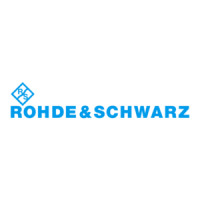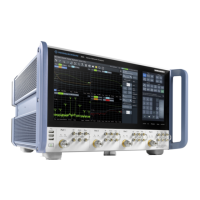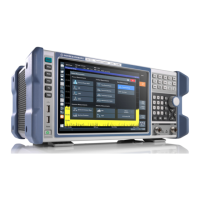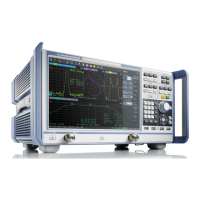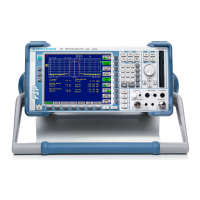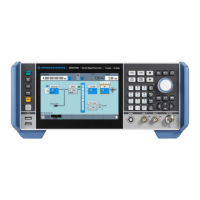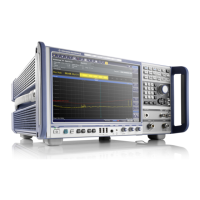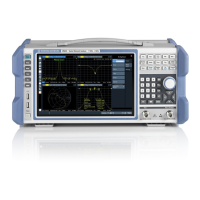Channel Menu R&S
®
ZVA/ZVB/ZVT
1145.1084.12 4.230 E-6
The circuit model for the load consists of capacitance C which is connected in parallel to an inductance
L and a resistance R, both connected in series.
• R is the constant resistive contribution. It is possible to select a special value (Open for
so
that the inductance coefficients are irrelevant, Short for 0 , Match for the reference impedance
of the current connector type) or set any resistance R.
• The fringing capacitance C and the residual inductance L are both assumed to be frequency-
dependent and approximated by the first four terms of the Taylor series around f = 0 Hz.
Load parameters and standard types
Load parameters are used to describe all types of standards except a Through, a Sliding Match,
aLineand an Attenuation.
• The Through standard is a through-connection between two ports with minimum loss which is
taken into account by the Offset Parameters.
• The Sliding Match is a one-port standard with variable load parameters (sliding load), so there
is no fixed load model.
• The Line standard is a line of variable length with minimum loss which is taken into account by
the Offset Parameters.
• The Attenuation is a two-port standard which is fully matched in both directions (the reflection
factor at both ports is zero). No load and offset parameters need to be set.
Remote control:
[SENSe<Ch>:]CORRection:CKIT:<conn_type>:<std_type>
Calibration Standard Types
The following table gives an overview of the different standards and their offset and load models:
Standard Type Characteristics Ideal Standard
(Dummy
Parameters)
Offset Model Load
Model
Open Open circuit (one-port)
Short Short circuit (one-port)
0
Offset short Short circuit with added electrical length
offset, for waveguide calibration (one-port)
0
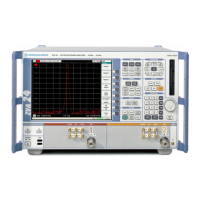
